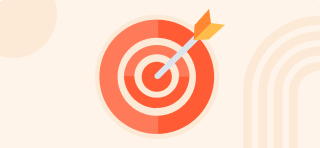-

Meet the Founder Who Raised $6.3M to Literally Make It Rain
While billionaires buy up water rights, startup Rainmaker is taking a radical approach: us...
Cyan Zhong
4/8/25
-

Who Uses Reddit Anyway? A Deep Dive Into Reddit Users and What They Think of Mar...
Learn who’s on Reddit, how they use the platform, and how your brand can create a presence...
Erin Pennings
4/8/25
-

AI Agents Will Kill Marketing As We Know It — Here’s What the Future Actually Lo...
Marketing has always been about persuasion — but AI agents don’t need to be convinced. Her...
Kieran Flanagan
4/8/25
-

30 Brand Style Guide Examples I Love (for Visual Inspiration)
Discover the elements of a brand style guide and some amazing examples in action to inspir...
Laura M. Browning
4/8/25
From HubSpot's video library
-
.jpg?height=240&name=YT-237_A%20(1).jpg)
How to Start Affiliate Marketing With No Experience or Money (4 Free Tools!)
-

How Airlines Really Make Money | Hustlenomics | The Hustle
-
.jpg?height=240&name=IMG_0735%20(1).jpg)
What Entrepreneurs Can Learn From Native Deodorant
-

Meet the Designer Behind the Iconic Nudie Suit | Unknown Empires
-

Tips For Elevating Your Next Go-To-Market Strategy (+ Free Templates)
-

Why T-Mobile Trademarked This Color | The Hustle
-
.jpg?height=240&name=YT-237_A%20(1).jpg)
How to Start Affiliate Marketing With No Experience or Money (4 Free Tools!)
-

How Airlines Really Make Money | Hustlenomics | The Hustle
-
.jpg?height=240&name=IMG_0735%20(1).jpg)
What Entrepreneurs Can Learn From Native Deodorant
-

Meet the Designer Behind the Iconic Nudie Suit | Unknown Empires
-

Tips For Elevating Your Next Go-To-Market Strategy (+ Free Templates)
-

Why T-Mobile Trademarked This Color | The Hustle
-
.jpg?height=240&name=YT-237_A%20(1).jpg)
How to Start Affiliate Marketing With No Experience or Money (4 Free Tools!)
-

How Airlines Really Make Money | Hustlenomics | The Hustle
-
.jpg?height=240&name=IMG_0735%20(1).jpg)
What Entrepreneurs Can Learn From Native Deodorant
-

Meet the Designer Behind the Iconic Nudie Suit | Unknown Empires
-

Tips For Elevating Your Next Go-To-Market Strategy (+ Free Templates)
-

Why T-Mobile Trademarked This Color | The Hustle
-

Making the B2B Customer Funnel Work for Your Team — Proven Strategies
Learn how to make a good customer funnel that will help your customers at every stage, fro...
Taylor Cromwell
4/8/25
-

AI Customer Service Agents: Transforming Modern Support for Faster, Smarter Serv...
Whether you’re a startup founder or a CX leader, this is your roadmap to leveraging AI cus...
Diego Alamir
4/7/25
-

I Took a Deep Dive Into Market Segmentation — Here's Everything I Learned
I took a deep dive into market segmentation. Here’s everything I learned.
Diego Alamir
3/18/25
-

Testimonial Questions Reps Need to Ask Their Customers
Not all testimonials are created equal — use these 25 smart questions to capture customer ...
Ashley Valadez
3/17/25
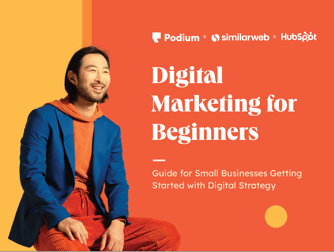
An Introduction to Digital Marketing
Learn the basics of digital marketing and explore different ways to reach your ideal customer.
-

The Buyer Motives Every Salesperson Should Know (+Tips from the Field)
There’s a reason for every purchase. Learn about 8 buyer motives and how to navigate emoti...
Dagny Dukach
4/8/25
-

Grants for Black-Owned Businesses and Other Funding Resources for Black Business...
Discover grants, funding opportunities, and key deadlines tailored for Black-owned busines...
Justina Thompson
4/8/25
-

Outcome-Based Selling: An Overview + Practical Tips
To stand out and grow, you must go beyond what your product does and prove how it drives r...
Jay Fuchs
4/8/25
-

HubSpot's 2025 State of Cold Calling Report [Data From 350+ Sales Professionals]
Where does cold calling stand in 2025? How many teams still do it? Is it effective? What d...
Jay Fuchs
4/7/25
From the HubSpot Podcast Network
-
Business Made Simple

Your Website Probably Stinks—Here’s How to Fix It!
-
The Science of Scaling

How to Scale a Billion Dollar Sales Team w/ John McMahon (Board Member, Snowflake)
-
Truth, Lies and Workplace Culture
-2.png?height=240&name=PodcastCovers23%20(1)-2.png)
From Bystander to Ally: How to Avoid DEIB Washing
-
Imperfect Action
-2.png?height=240&name=PodcastCovers23%20(4)-2.png)
The art of the post-launch review: 5 questions to make your next launch a success
-
Latinx In Power
.png?height=240&name=PodcastCovers23%20(6).png)
Harnessing the Power of Silence in Negotiation with Diana Kleps
-
The Sales Evangelist

5 Ways To Do Daily Outbound With LinkedIn
-
Business Made Simple

Your Website Probably Stinks—Here’s How to Fix It!
-
The Science of Scaling

How to Scale a Billion Dollar Sales Team w/ John McMahon (Board Member, Snowflake)
-
Truth, Lies and Workplace Culture
-2.png?height=240&name=PodcastCovers23%20(1)-2.png)
From Bystander to Ally: How to Avoid DEIB Washing
-
Imperfect Action
-2.png?height=240&name=PodcastCovers23%20(4)-2.png)
The art of the post-launch review: 5 questions to make your next launch a success
-
Latinx In Power
.png?height=240&name=PodcastCovers23%20(6).png)
Harnessing the Power of Silence in Negotiation with Diana Kleps
-
The Sales Evangelist

5 Ways To Do Daily Outbound With LinkedIn
-
Business Made Simple

Your Website Probably Stinks—Here’s How to Fix It!
-
The Science of Scaling

How to Scale a Billion Dollar Sales Team w/ John McMahon (Board Member, Snowflake)
-
Truth, Lies and Workplace Culture
-2.png?height=240&name=PodcastCovers23%20(1)-2.png)
From Bystander to Ally: How to Avoid DEIB Washing
-
Imperfect Action
-2.png?height=240&name=PodcastCovers23%20(4)-2.png)
The art of the post-launch review: 5 questions to make your next launch a success
-
Latinx In Power
.png?height=240&name=PodcastCovers23%20(6).png)
Harnessing the Power of Silence in Negotiation with Diana Kleps
-
The Sales Evangelist

5 Ways To Do Daily Outbound With LinkedIn
-

HTML Projects for Beginners: 10 Easy Starter Ideas
Discover 10 easy HTML projects for beginners to enhance your web development skills. Perfe...
Danielle Ellis
4/8/25
-

20 UX Design Examples Hand-Picked by Experts [With Analysis]
Discover top UX design examples selected by UX researchers and designers, and get expert i...
Amy Rigby
4/7/25
-

How to Conduct a UX Audit: Steps, Tips, & Best Practices
Learn how to conduct a UX audit for your website or app to improve user experience, plus g...
Kiran Shahid
4/7/25
-

How Nielsen’s Usability Heuristics Apply to Websites, According to UX Pros
Learn how to apply the 10 usability heuristics to your website and create user-centered in...
Clint Fontanella
4/7/25
-

Building a Scalable Website — All the Components You Need
Learn how to build a scalable website that can handle high traffic demands efficiently and...
Darrielle Evans
4/3/25
-

Custom Domains: Why You Need One and How To Get Started
Learn the benefits of a custom domain and how much they cost, plus get examples.
Lauren Farrell
4/2/25
Explore more topics
Ready to brush up on something new? We've got more to read right this way.

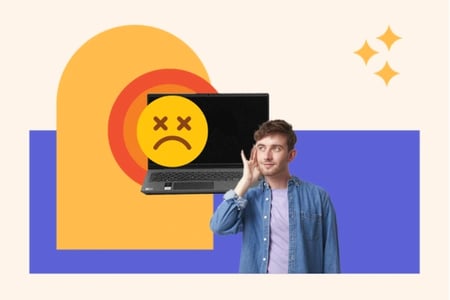

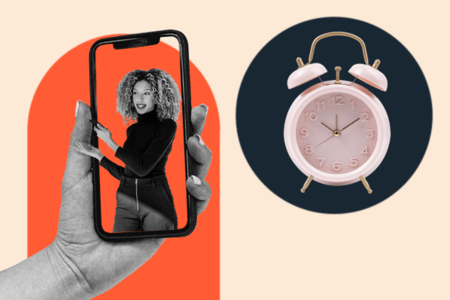
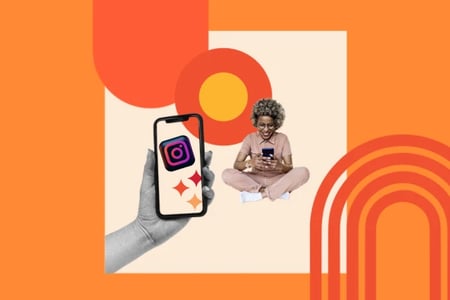

.png)
